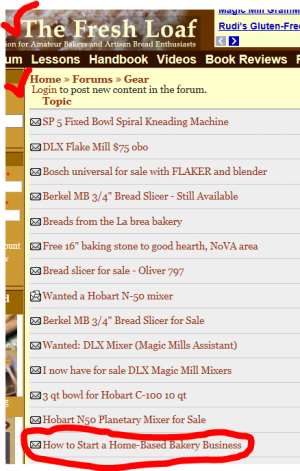Proven Ways To Use Content To Attract Links
This article is really part three of our Link Building Foundational Blueprint series and will focus on using content to attract links. Here are parts one and two. There are many ways to generate links using content, you’re probably familiar with article writing, guest blogging, link bait, white papers etc. All of these content tactics […]
 This article is really part three of our Link Building Foundational Blueprint series and will focus on using content to attract links. Here are parts one and two.
This article is really part three of our Link Building Foundational Blueprint series and will focus on using content to attract links. Here are parts one and two.
There are many ways to generate links using content, you’re probably familiar with article writing, guest blogging, link bait, white papers etc. All of these content tactics are fine and still work, but since they’re talked about frequently, I won’t go into the basic mechanics behind each.
Instead, let’s take a look at a handful of tips and twists you can use with these foundational tactics to generate additional links.
Use What You Have
If you have a company blog and/or are writing articles and distributing them to places like article directories and how-to sites, you’ve already produced a lot of usable content. Here’s a couple of ways to reuse that content and attract links.
Re-use old blog posts
If your site has been online for awhile, chances are you have a blog to go with it. Pull posts with high comment and traffic counts, group by topic and rewrite each as a longer, more robust article. Be sure to point links embedded in the article to internal pages of your site optimized for these terms. Distribute this new content through the article directories.
Re-use old articles
If you have a lot of content in the article directories or in the resource center on your site, pull the articles and rewrite down into small, 200 – 250 word “posts” and use to create a newsletter. Add elements such as:
- Product Q&A. Less fluff, more facts is best.
- Cartoon humor. If you can’t find one written for your industry, create one here.
- Industry announcements. Tap into your association or trade journal news stream.
- Article submission. Accept industry articles from businesses in your niche. This will help round out your newsletter, attract links and become a viable source of information for your industry.
After the first newsletter has been published and added to your site, issue a press release announcing its creation and include a link to the registration area. Email your customer base before issuing the press release, let them have a sneak peek at your new offering.
Tip: Search for sources to add/advertise your newsletter. Instead of using phrases such as “addURL” or “submit site”, use “fan base” terms to locate like-minded groups. For example:
- “fan club” + your keyword(s)
- “association” + your keyword
- “circle” + your keyword
- “league” + your keyword
Our goal here is to find fresh sources to host our newsletter link and tap into an industry fan base. People tend to link to sources hosting what they write, be proactive in finding guest writers from “fan” type locations and ask them to contribute to your newsletter.
New Twist To Old Content
It really doesn’t matter what type of link building you do, but it does matter where you do it. You can have the most outrageous, well written, visually pleasing infographic in the universe but if it’s sitting on an algorithmically crappy, low-traffic web page, it’s not going to help you rank or make money. For link embedded content to be most effective, it needs to sit on solid sources.
It can be hard to find sources in some markets and when this happens, I step back and look at how I can use what’s already out there. I focus on finding industry forums and content already written using my keywords. When I’ve found both, here’s what I do:
Use content hubs
Go to a content hub (article directory, white paper repository or industry news site) of your choice and make a list of all the content written on your subject. It doesn’t matter who wrote it, just be sure the keywords in the article match/are close to yours. Use a tool such as Article Checker to see who’s hosting the original article. Offer your new content to the same sources.
Use forums
There is a forum for everything, from baking bread to zoology protocols; if there’s more than ten people interested in a topic, there’s a forum. Tap into their collective power by getting involved and becoming familiar with the various threads.

You can post an excerpt from your book and link directly to your sales pages. Take a look at the ebook for sale on the bread forum on the right!
A friendly comment here regarding forums…
Over the years, I’ve been involved in many, both in and outside of the SEO community. The topics may change but the overall sense of community doesn’t, so don’t take advantage here and treat them like an advertising platform. Get involved and be a good neighbor before offering your content commercially.
Tip: Substitute “discussion lists” for forums and look for groups dedicated to talking and writing about your subjects.
Tip: Every time you create new content and upload it to a web page, tweet the title of the article, your company name and the URL of the page it sits on. It doesn’t matter if the article isn’t on your site, tweet it and if you have a Facebook page, add it there too.
Key Takeaways
With the search engines frowning on “content farms” and artificial blog networks, finding and using untapped sources is crucial for link marketing success. Good content drives traffic, builds a brand and hosts keyword anchor text, three important components for an online business to rank well and attract quality traffic.
Spend time and resources in finding and partnering with key sites in your online community, and it will go a long way to making your site an authority in your industry. Until next time – good linking!
Contributing authors are invited to create content for Search Engine Land and are chosen for their expertise and contribution to the search community. Our contributors work under the oversight of the editorial staff and contributions are checked for quality and relevance to our readers. The opinions they express are their own.
Related stories
New on Search Engine Land